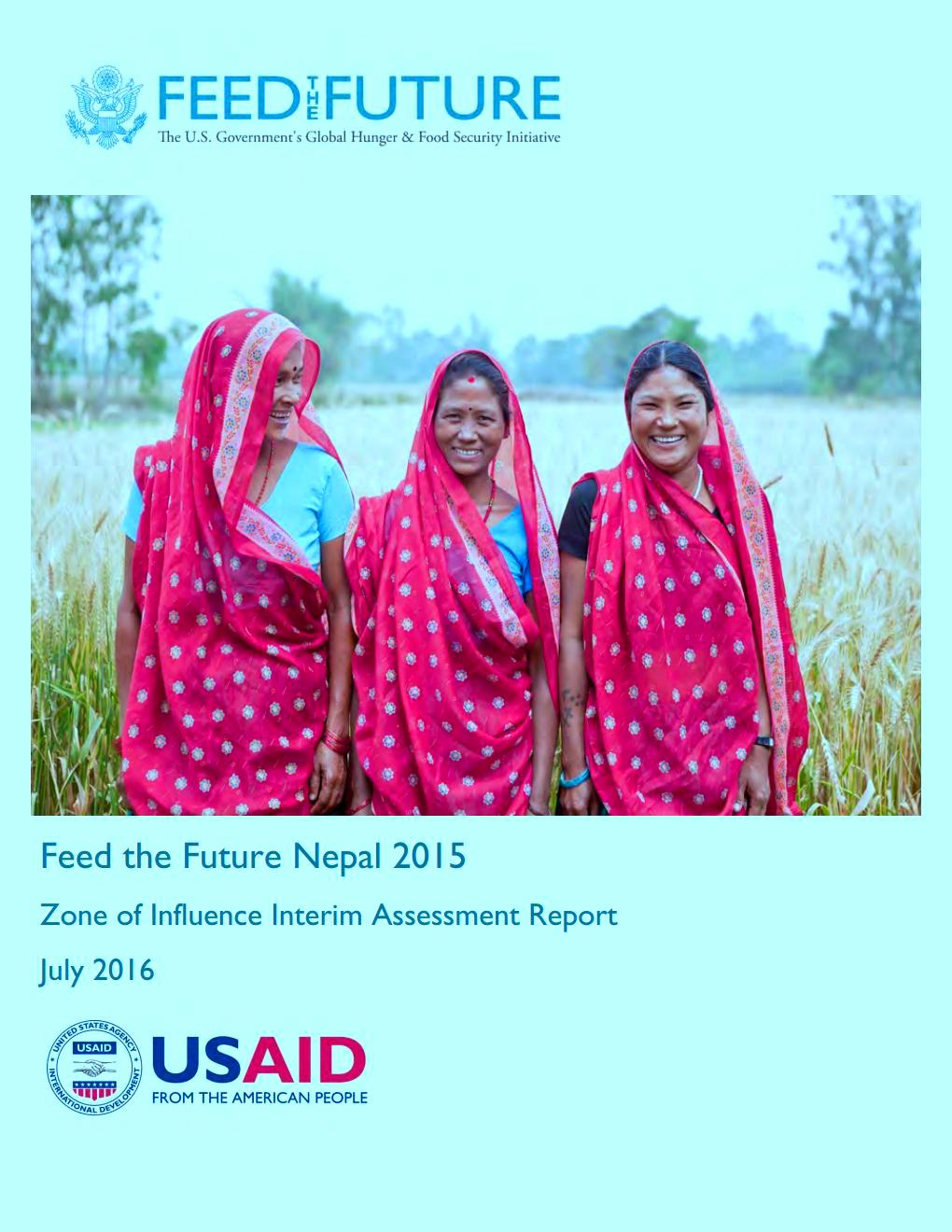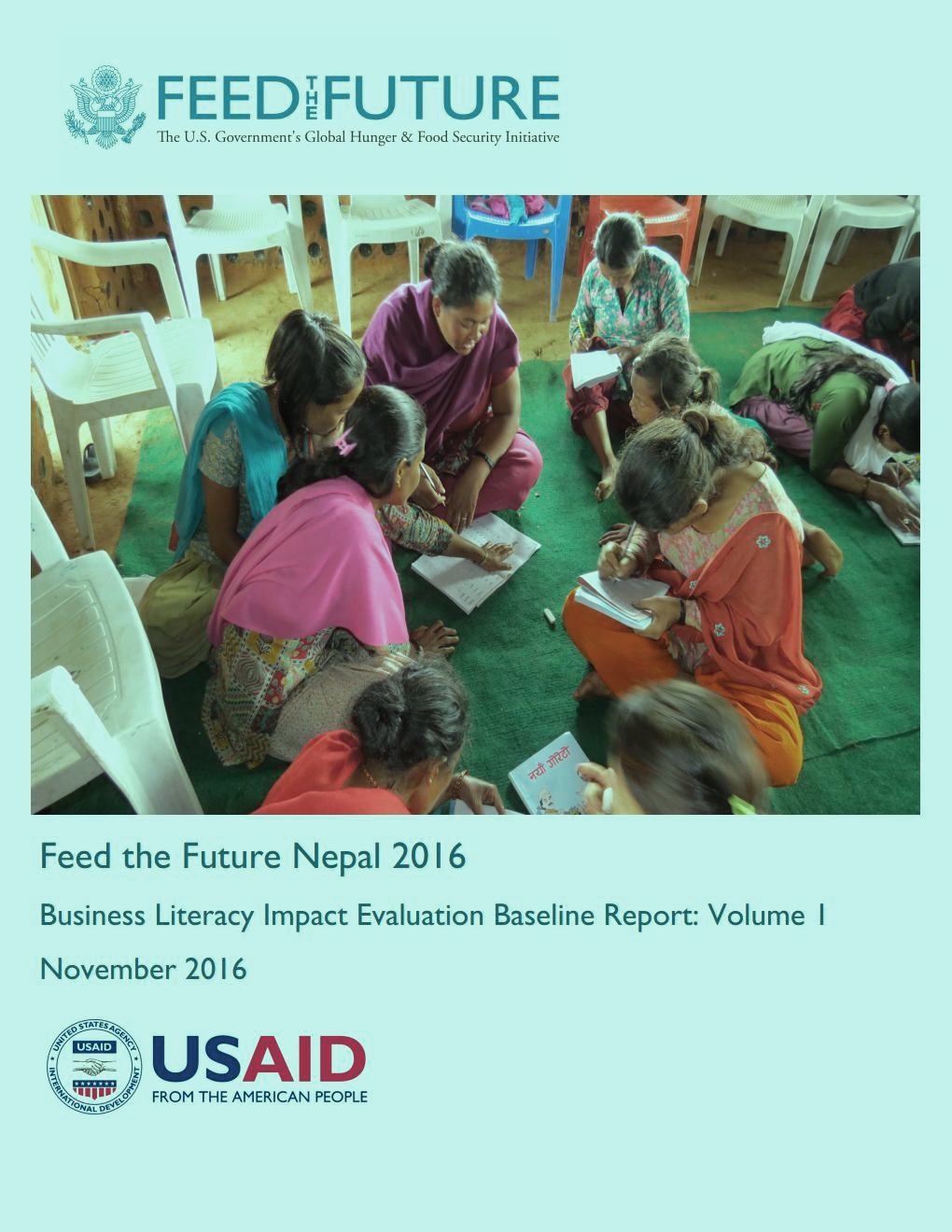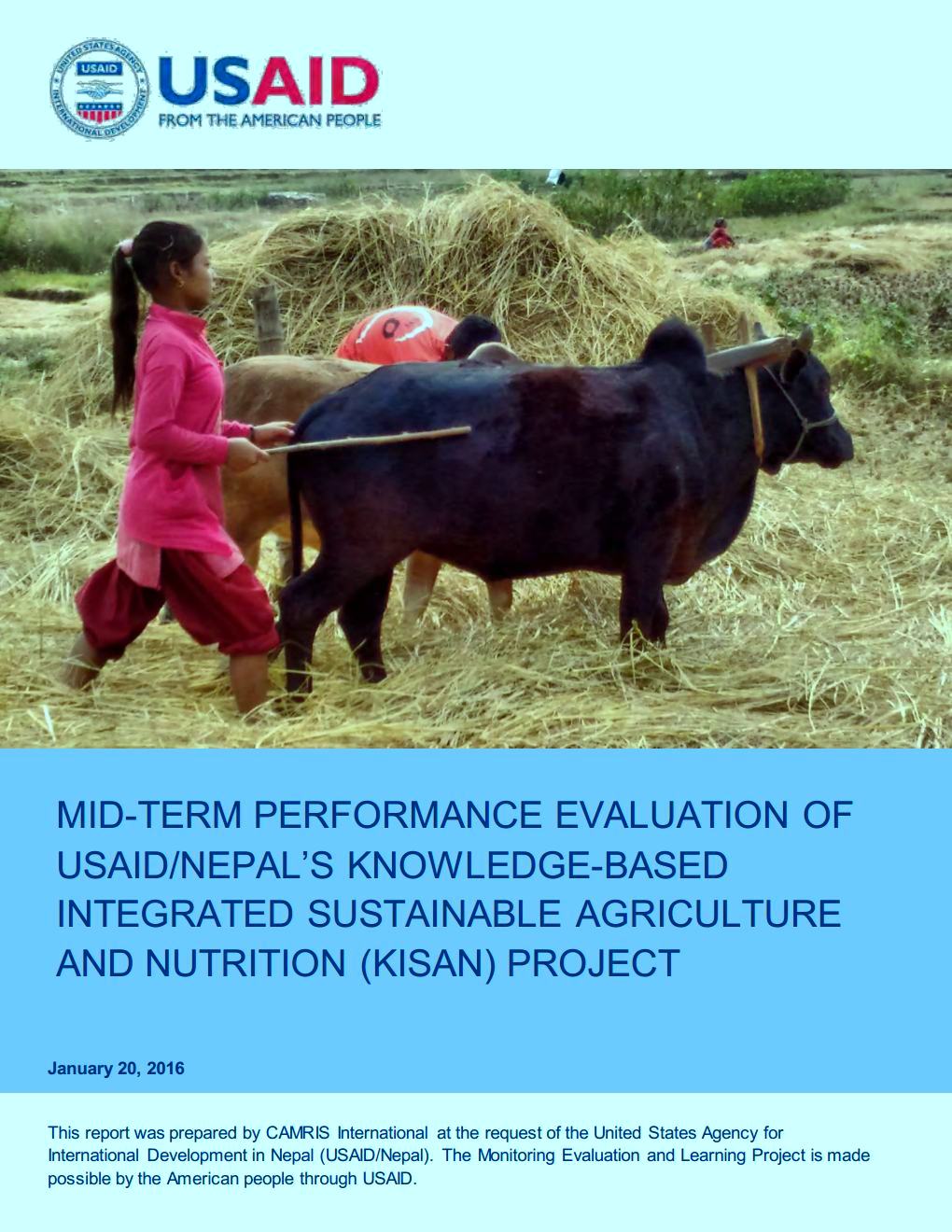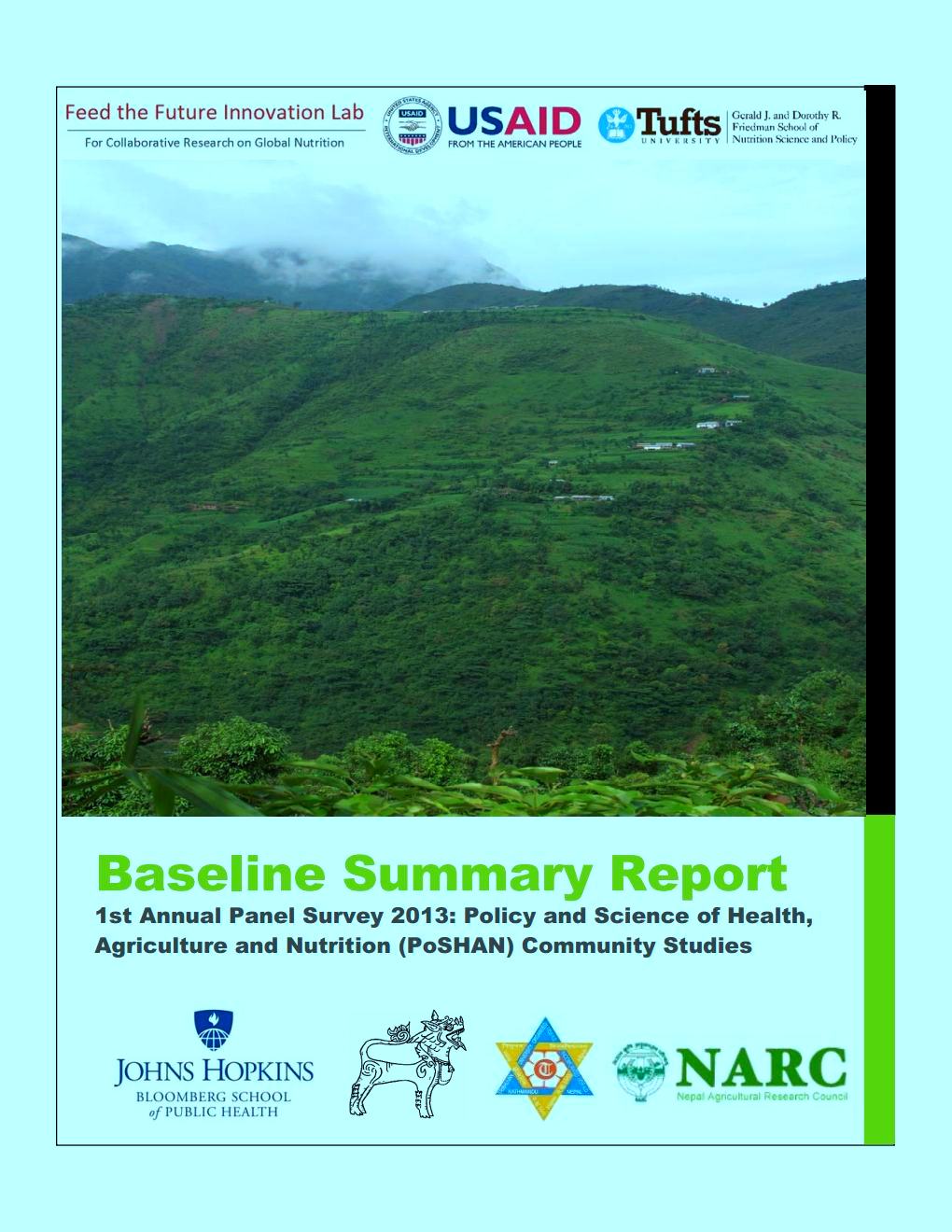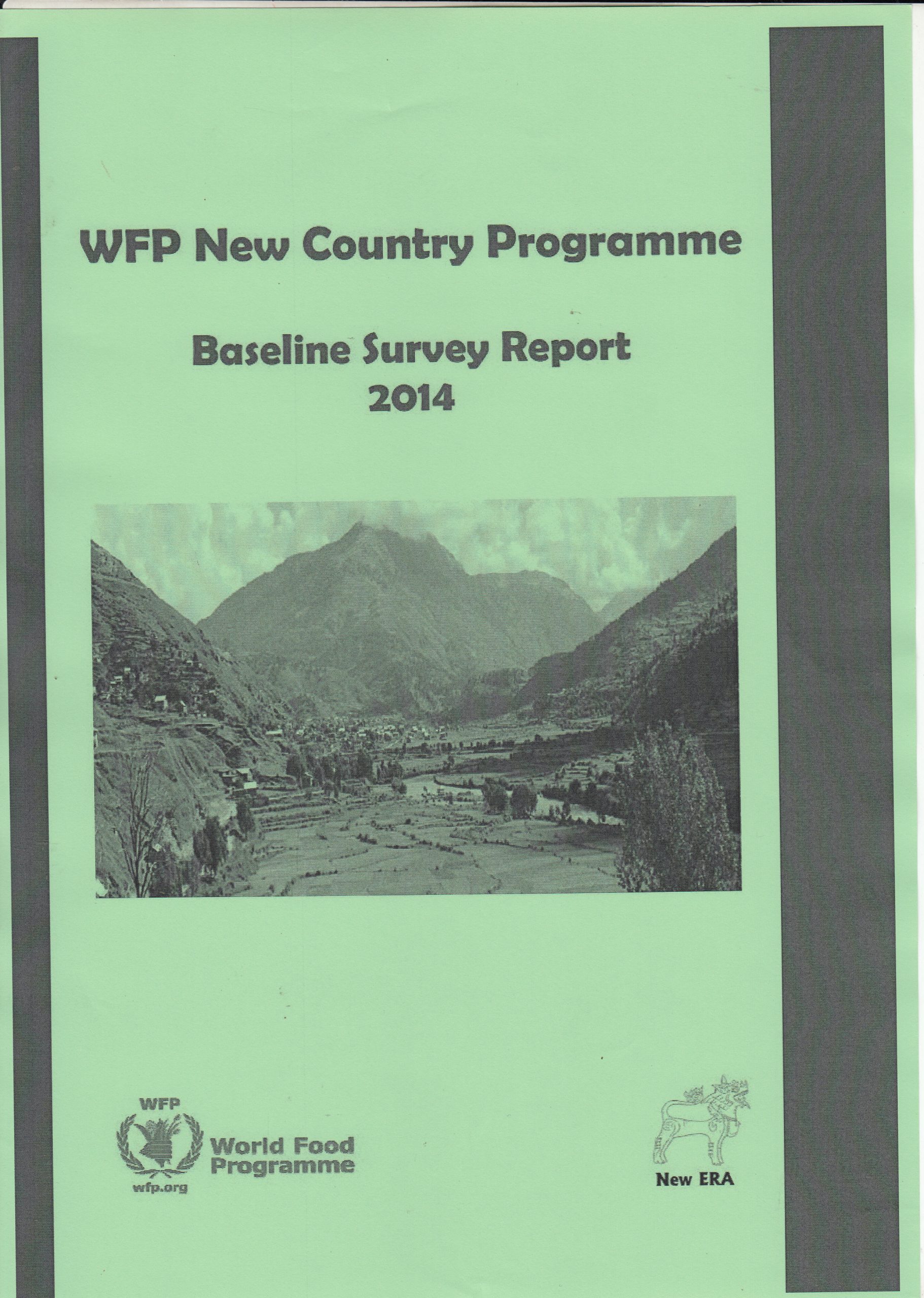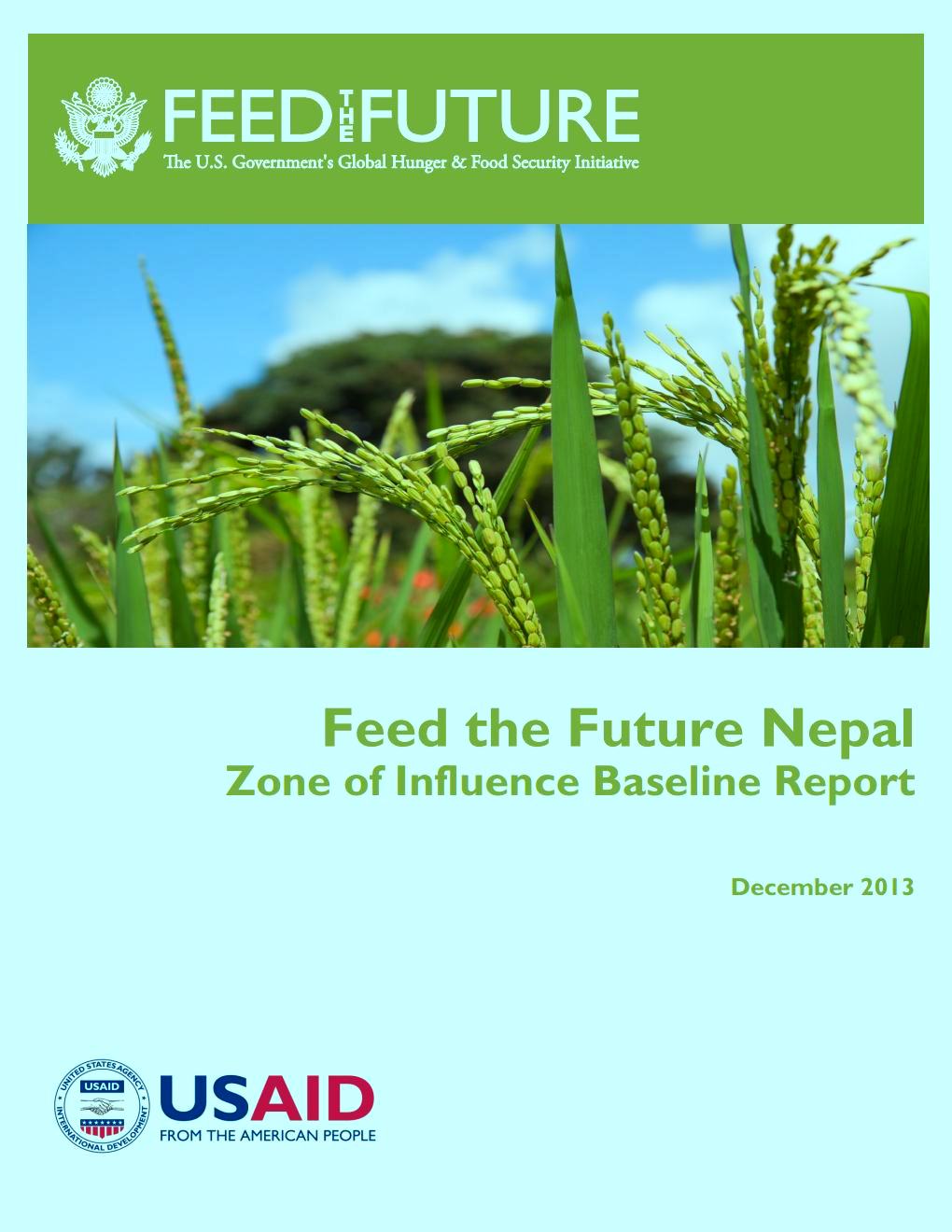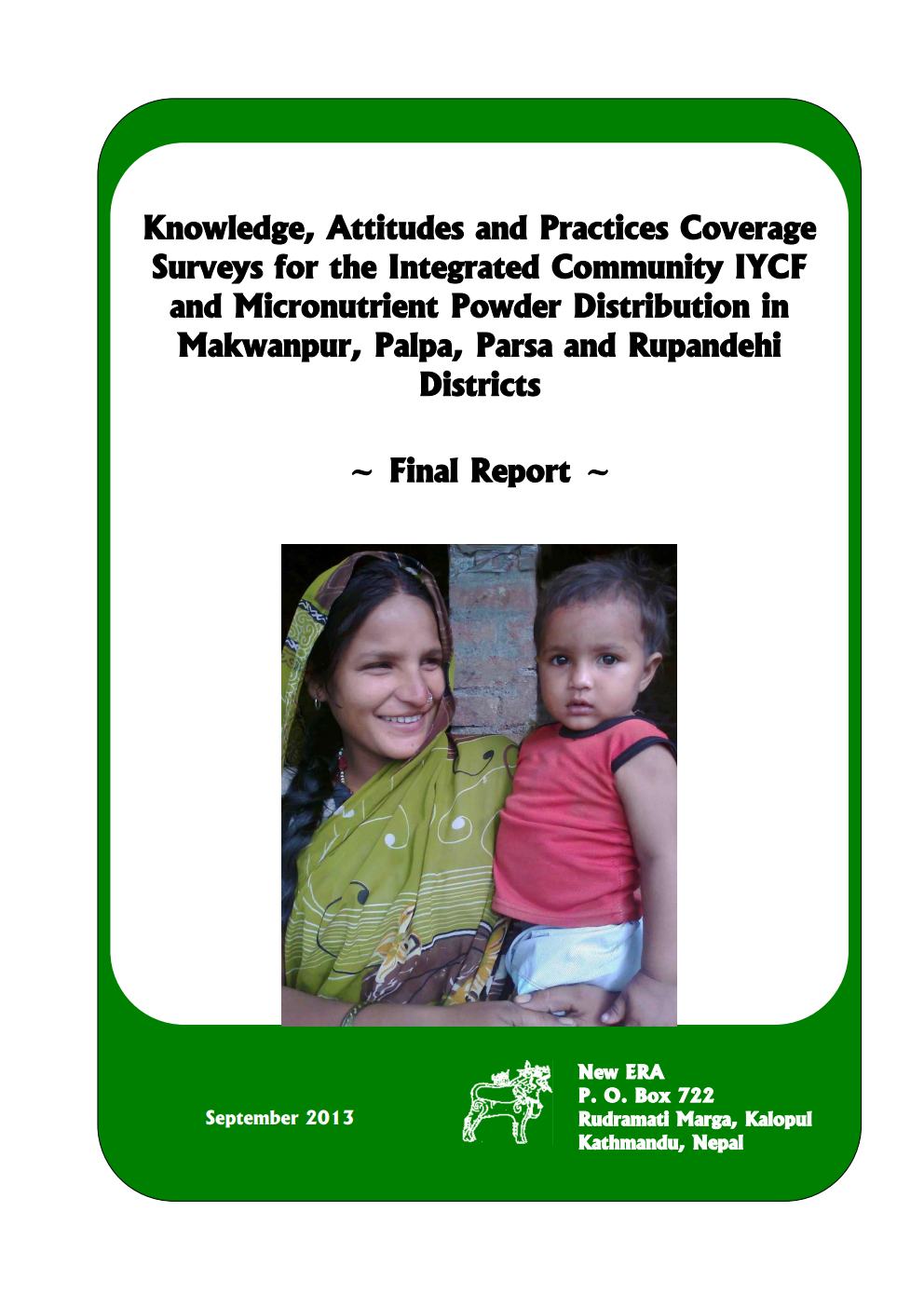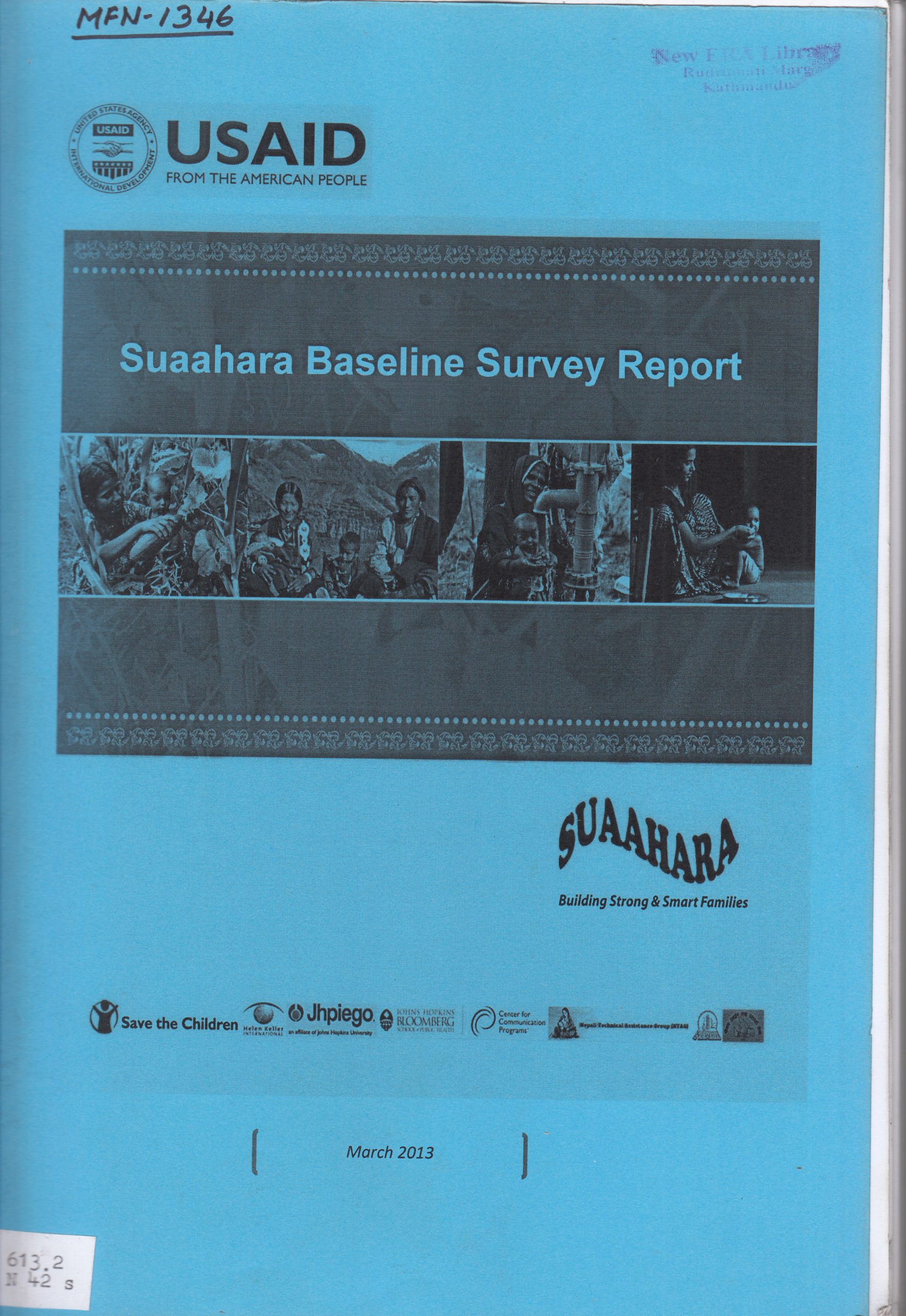Feed the Future Initiative was implemented by USAID in many food-insecure developing countries with focus on growth of agricultural sector and improvement in nutritional status. In Nepal the FFI was implemented in 20 food insecure districts of western Nepal. This Nepal chapter of influence survey seeks to show any changes in indicators related to poverty, household expenditures, women’s empowerment, hunger, dietary diversity and feeding behaviors, nutritional status of women, wasting, underweight, and stunting in children.
Report Type: Nutrition
Feed the Future Nepal 2016: Business Literacy Impact Evaluation Baseline Survey
The Business Literacy Program (BLP) is a component among the Feed the Future (FTF) strategy. The overarching objective of BLP was to contribute toward FTF’s interest in increased resilience of vulnerable populations through training designed to enhance key skills in literacy and innumeracy, nutrition knowledge, life skills, entrepreneurship and access to finance among women, youth, disadvantaged castes, and ethnic minorities of 20 focus districts. This study was conducted to measure the impact of the program. The study assessed knowledge, skills and attitude and behaviors of beneficiaries of the program.
Mid-Term Performance Evaluation of Knowledge-Based Integrated Sustainable Agriculture and Nutrition (KISAN) Project
The Knowledge-Based Integrated Sustainable Agriculture and Nutrition (KISAN) Project was implemented Ministry of Agricultural Development with support of USAID in 20 Terai and hill districts of the Far Western, Mid-Western, and Western Regions of Nepal. The purpose of the project was to sustainable improving food security and increase incomes of farm households of project districts. This study was to determine performance of activity to accomplish its intended goals and objectives. The study assesses the effectiveness of the project’s approaches and degree of sustainability in both terai and hill districts among various population groups.
A Midline Survey for the Agriculture and Food Security Project
This survey was design to measure current changes in the impact on Improved Crop Productivity, Livestock Productivity and Feeding Practices among the study community. The study also assesses adoption of improved agricultural inputs, promoted crops such as vegetables, improved health and livestock rearing and breeding practices. Beside that the study assesses household hunger score, dietary diversity score, starchy staple ratio, food consumption score, homestead production practice, behavior change communication and income from the agriculture.
Policy and Science of Health, Agriculture and Nutrition (PoSHAN) Panel Survey, Phase I – IV
Policy and Science of Health, Agriculture and Nutrition (PoSHAN) survey is a part of USAID supported nutrition-focused multi-disciplinary research effort to address “Feed the Future Food Security Innovation Laboratory: Collaborative Research on Nutrition” in developing countries. The study aims to explore a new paradigm that links agriculture with health strategies to address under nutrition in developing countries. This Nepal chapter panel survey was conducted annually in 2013, 2014, 2015 and 2016. The study was collect data on the direction and strengths of association between agricultural practices, market prices and household food security in rural Nepal. The study explores how governance processes influence the implementation of nutrition-specific and nutrition-sensitive policies. The study also assessed nutritional status of married women of reproductive age having children below 5 years of age, adolescent girls and children less than 5 years of age.
WFP New Country Program (2013-2017) -Baseline Survey
A five-year new country program 2013-2017 of World Food Program (WFP) is implementing in collaboration with the consortium of partners to enhance the resilience of vulnerable communities prone to shocks, and foster the food security and nutrition of vulnerable populations in Nepal. This survey was designed to obtain the baseline data on food security, disaster risk reduction, vulnerability, nutrition, school enrollment and attendance at the district level. The study assesses nutritional impact and anemia among women and children, child feeding behaviors among women; monthly income and expenditure; drinking water in local primary schools; and community awareness on health and nutrition.
Feed the Future Nepal Zone of Influence Baseline Survey
Feed the Future (FTF) program was initiated US government in response to tackle global food security challenges. FTF focuses on growth of the agricultural sector and improvement in nutritional status in many food insecure countries around the world. Since Nepal is identified as one of the 20 food insecure countries, a five year FTF project, locally termed as Knowledge-Based Integrated Sustainable Agriculture and Nutrition (KISAN) Project is being implemented from 2013 onwards in 20 districts of western Nepal. This survey was to collect baseline indicators on dietary diversity, feeding behaviors, nutritional status of women and children in households. The study also assesses poverty situation, hunger, income and expenditures and women’s empowerment in the study districts.
Baseline Survey for the Impact Evaluation of the Agriculture and Food Security Project
The Agriculture and Food Security Project (AFSP) funded by the World Bank was implemented by Ministry of Agriculture Development in 19 districts of Far-western and Mid-western Development Regions of Nepal. The main goal of this five year (2013 – 2018) project is to address low agricultural productivity, food security and save the maternal and child health in the project site. This study obtained baseline data on agriculture practices, productivity of foodgrain, livestock, food habit, and socioconomic characteristics. The study also assesses production of promoted crops, usage of inputs such as improved seed and fertilizer, food consumption practice, food diversity habit, demand of nutritious food for young children and pregnant and breastfeeding mothers.
Knowledge, Attitudes and Practices Coverage Survey for the Integrated Infant and Young Child Feeding and Micronutrient Powders Distribution in Makwanpur, Palpa, Parsa and Rupandehi Districts
The Nepal Government together with UNICEF and other implementing organizations has designed and launched an intervention project of an “Integrated Infant and Young Child Feeding (IYCF) Micronutrient Powder (MNP) local named ‘Baal-vita’ supplementation” among children 6-23 months. This survey was to assess knowledge, coverage and practices related of IYCF and Baal Vita interventionin four polit districts: Makwanpur, Palpa, Rupandehi and Parsa. The study asseses the knowledge, attitude and practices (KAP) of mother, caretakers and FCHVs on Baal Vita, IYCF and Micronutrients.
Suaahara Baseline Survey
Suaahara (Sudddha Santulit Aahar Hamro Jeevan Rakchya ko Baliyo Aadhar) – is a USAID funded five-year (2011 – 2016) integrated nutrition program collaboration with the Government of Nepal and a consortium of partners in twenty rural districts of Nepal. The overall goal of Suaahara program is to achieve reduction under-nutrition by improving household health and nutritional behaviors of the community. This study obtained baseline key indicators of nutritional impact including stunting, wasting and underweight among children less than 5 years of age. The study also assesses BMI, anemia, and behavioral indicators that are know to be associated with nutritional status.



